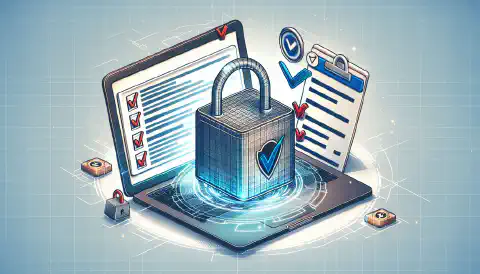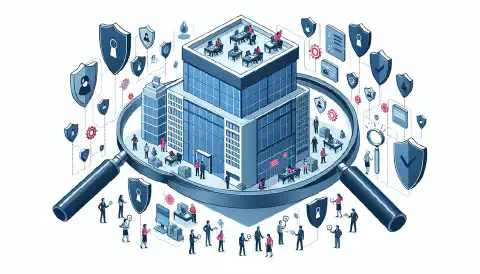Unlocking the Secrets: Navigating the Dark Web Safely for Anonymity and Privacy
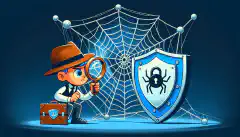
Table of Contents
Navigating the Dark Web Safely: A Beginner’s Guide
The Dark Web is a part of the internet that is not indexed by search engines and requires special software to access. It is often associated with illegal activities, but it can also be a valuable resource for individuals seeking anonymity and privacy. Navigating the Dark Web safely requires understanding its workings and taking precautions to protect your identity and personal information. In this article, we will explore the key aspects of navigating the Dark Web and provide important tips for staying safe.
Key Takeaways
- Use a VPN and the Tor browser for anonymity and security.
- Be cautious of scams and malware on the Dark Web.
- Protect your personal information and avoid revealing too much.
- Access encrypted communication channels for secure interactions.
- Understand the legal and ethical considerations of using the Dark Web.
Understanding the Dark Web
What is the Dark Web?
The Dark Web is a hidden part of the internet that is not indexed by traditional search engines. It is a network of websites and online services that are intentionally hidden and can only be accessed through specific software or configurations.
- The Dark Web is often associated with illegal activities, such as drug trafficking, hacking, and the sale of stolen data.
- It is important to note that not all activities on the Dark Web are illegal, as there are also legitimate websites and services that operate within this hidden network.
- The anonymity provided by the Dark Web makes it attractive to individuals who want to protect their privacy or engage in activities that are not permitted on the surface web.
- However, navigating the Dark Web comes with significant risks, as it is a breeding ground for scams, malware, and other cyber threats.
- It is crucial for individuals to understand the potential dangers and take necessary precautions when accessing the Dark Web.
How does the Dark Web work?
The Dark Web operates using a combination of technologies and protocols that enable users to access websites and services anonymously. This anonymity is achieved through the use of Tor (The Onion Router), which routes internet traffic through a network of volunteer-operated servers called nodes. Here’s a breakdown of how the Dark Web works:
- When a user wants to access a website on the Dark Web, their request is encrypted and sent through a series of Tor nodes.
- Each node in the network only knows the IP address of the previous node and the next node, ensuring that the user’s identity remains hidden.
- The request eventually reaches the final node, which decrypts the request and forwards it to the intended website.
- The website’s response follows the same path back to the user, ensuring that the user’s identity remains anonymous.
By routing internet traffic through multiple nodes, Tor provides a high level of anonymity for users accessing the Dark Web. However, it’s important to note that while Tor provides anonymity, it does not guarantee security. Users still need to take precautions to protect their personal information and avoid malicious websites and scams.
The history of the Dark Web
The history of the Dark Web is a fascinating journey that spans several decades. It originated from the early days of the internet and has evolved into a complex network of hidden websites and encrypted communication channels. Understanding the history of the Dark Web is crucial for comprehending its current state and the challenges it presents for cybersecurity.
- The Dark Web emerged in the 1990s as a result of the growing need for online privacy and anonymity. It was initially used by government agencies, researchers, and activists to communicate securely and share sensitive information.
- Over time, criminal elements started to exploit the anonymity provided by the Dark Web for illegal activities, such as drug trafficking, hacking, and selling stolen data.
- The most significant milestone in the history of the Dark Web was the creation of the Tor network in the early 2000s. Tor, short for The Onion Router, became the primary tool for accessing the Dark Web, offering users a high level of anonymity and encryption.
- Since then, the Dark Web has continued to evolve, with new technologies and services constantly emerging to enhance privacy and security.
Understanding the history of the Dark Web provides valuable insights into its origins, development, and the challenges it poses for cybersecurity professionals. By studying its past, we can better prepare for the future and develop effective strategies to navigate and secure this hidden part of the internet.
Staying Safe on the Dark Web
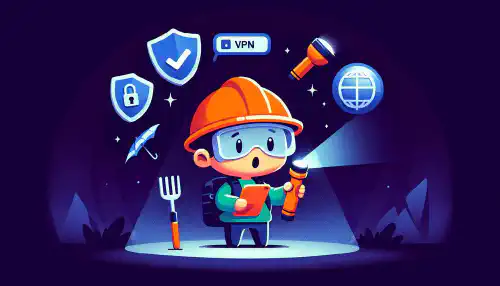
Using a VPN for anonymity
When it comes to ensuring your anonymity on the Dark Web, using a VPN is crucial. A VPN, or Virtual Private Network, creates a secure and encrypted connection between your device and the internet. By routing your internet traffic through a remote server, a VPN masks your IP address and encrypts your data, making it difficult for anyone to track your online activities.
Here are some key benefits of using a VPN for anonymity on the Dark Web:
- Enhanced privacy: A VPN adds an extra layer of privacy by hiding your IP address and encrypting your internet traffic.
- Bypassing censorship: A VPN allows you to bypass censorship and access websites and content that may be blocked in your country.
- Protection against surveillance: By encrypting your data, a VPN protects you from surveillance and monitoring by government agencies or malicious actors.
Tip: When choosing a VPN provider, make sure to select a reputable and trustworthy service, such as Nord VPN , that has a strict no-logs policy and strong encryption protocols.
Tor browser: The gateway to the Dark Web
The Tor browser is a crucial tool for accessing the Dark Web securely and anonymously . It is specifically designed to protect users’ privacy and ensure their online activities remain hidden from surveillance. By routing internet traffic through a network of volunteer-operated servers, Tor conceals the user’s IP address and encrypts their data, making it extremely difficult for anyone to trace their online activities back to them.
Avoiding scams and malware
To navigate the Dark Web safely and protect yourself from scams and malware, it is crucial to follow certain precautions. Scams and malware are prevalent on the Dark Web, and falling victim to them can have serious consequences. Here are some important tips to keep in mind:
- Exercise caution when interacting with unknown individuals or websites: Be skeptical of any offers that seem too good to be true, as they are likely scams. Avoid clicking on suspicious links or downloading files from untrusted sources.
- Use reputable marketplaces: Stick to well-known and trusted marketplaces when making purchases on the Dark Web. These marketplaces often have user reviews and ratings that can help you assess the reliability of sellers.
- Keep your software up to date: Regularly update your operating system, antivirus software, and other security tools to ensure they have the latest security patches.
- Enable two-factor authentication: Adding an extra layer of security to your accounts can help prevent unauthorized access.
Tip: Always use common sense and trust your instincts when navigating the Dark Web. If something feels suspicious or too good to be true, it probably is.
By following these precautions, you can significantly reduce the risk of falling victim to scams and malware on the Dark Web.
Protecting your personal information
When navigating the Dark Web, it is crucial to take steps to protect your personal information. The anonymity provided by the Dark Web can be both a blessing and a curse, as it attracts not only legitimate users but also cybercriminals seeking to exploit vulnerabilities.
To safeguard your personal information, consider the following measures:
- Use pseudonyms: Avoid using your real name or any personally identifiable information when creating accounts or interacting with others on the Dark Web.
- Encrypt your communications: Utilize encryption tools to secure your messages and prevent unauthorized access.
- Be cautious with sharing information: Only share necessary information with trusted sources and avoid revealing sensitive details that could be used against you.
- Regularly update passwords: Change your passwords frequently and use strong, unique passwords for each account.
- Beware of phishing attempts: Be vigilant for phishing emails or messages that attempt to trick you into revealing personal information.
Remember, protecting your personal information is essential to maintaining your privacy and security while navigating the Dark Web.
Dealing with illegal content
When navigating the Dark Web, it is important to be aware of the presence of illegal content and take appropriate measures to avoid engaging with it. Illegal content refers to any material that violates local, national, or international laws, such as child pornography, drug trafficking, or hacking tools. Engaging with illegal content not only puts you at risk of legal consequences but also supports criminal activities. To protect yourself and maintain ethical behavior, follow these guidelines:
Navigating the Dark Web

Finding legitimate websites
When navigating the Dark Web, it is crucial to find legitimate websites to ensure your safety and protect against scams and malicious activities. Here are some tips to help you find trustworthy sources:
Understanding the search engines
Search engines on the Dark Web function differently from those on the surface web. They are designed to index and retrieve information from hidden services that are not accessible through traditional search engines like Google or Bing. Dark Web search engines use a combination of techniques to crawl and index these hidden services, allowing users to discover and access content that is not easily found through other means.
- Dark Web search engines are specifically designed to navigate the anonymous and encrypted nature of the Dark Web.
- They use onion routing to anonymize user requests and protect their identity.
- Dark Web search engines often rely on web scraping techniques to gather information from hidden services.
- Some popular Dark Web search engines include Grams, Torch, and Not Evil.
It is important to note that while Dark Web search engines can help users find specific content, they do not guarantee the legitimacy or safety of the websites they index. Users should exercise caution and follow best practices for staying safe on the Dark Web.
Exploring hidden services
When exploring hidden services on the Dark Web, it is important to exercise caution and follow best practices to ensure your safety and security. Hidden services refer to websites that are not indexed by traditional search engines and can only be accessed through specific protocols or networks. Here are some key considerations when navigating hidden services:
- Verify the legitimacy: Before accessing a hidden service, it is crucial to verify its legitimacy. Due to the anonymous nature of the Dark Web, there is a higher risk of encountering scams or malicious websites. Take the time to research and gather information about the service before proceeding.
- Use reputable directories: Utilize reputable directories or forums that provide verified links to hidden services. These platforms often have a community of users who review and validate the authenticity of the websites, reducing the risk of stumbling upon malicious or illegal content.
- Exercise caution with personal information: Avoid providing any personal information when accessing hidden services. The Dark Web is known for its illicit activities, and sharing personal details can put your privacy and security at risk.
- Stay updated on security measures: Keep yourself informed about the latest security measures and tools to protect your anonymity and data when exploring hidden services. Regularly update your VPN and Tor browser to ensure you have the latest security patches.
Remember, navigating hidden services on the Dark Web requires a high level of caution and awareness. By following these guidelines, you can minimize the risks and have a safer experience.
Interacting with online communities
When engaging with online communities on the Dark Web, it is crucial to exercise caution and be aware of potential risks. Anonymity is a key aspect of the Dark Web, allowing users to interact without revealing their true identities. However, it is important to remember that not all online communities on the Dark Web are trustworthy or safe. Here are some important considerations when interacting with online communities:
Accessing encrypted communication channels
When accessing encrypted communication channels on the Dark Web, it is crucial to prioritize anonymity . By using a reliable VPN service, you can ensure that your online activities remain hidden and your identity protected. Additionally, it is important to use the Tor browser, which provides a secure gateway to the Dark Web. This browser encrypts your internet traffic and routes it through a network of volunteer-operated servers, making it difficult for anyone to trace your online activities back to you. It is also essential to be cautious when interacting with others on the Dark Web, as not everyone may have good intentions. Avoid sharing personal information and be wary of any requests for sensitive data or financial transactions. Finally, it is advisable to use encrypted messaging services, such as PGP (Pretty Good Privacy), for secure communication on the Dark Web.
Legal and Ethical Considerations
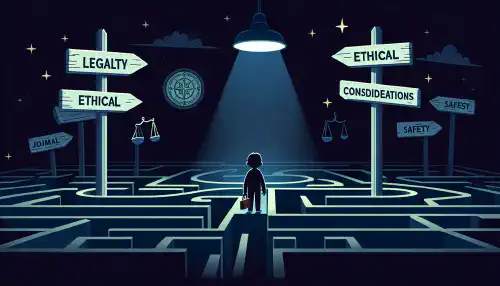
The legality of accessing the Dark Web
Accessing the Dark Web raises legal concerns that individuals should be aware of. It is important to understand the legal implications of engaging with this hidden part of the internet. While the Dark Web itself is not illegal, certain activities conducted within it can be. It is crucial to differentiate between legal and illegal activities to avoid any potential legal consequences.
Ethical implications of using the Dark Web
Using the Dark Web raises several ethical concerns that users should be aware of. The anonymity provided by the Dark Web can attract individuals with malicious intent, leading to illegal activities and the proliferation of harmful content. It is important for users to understand the potential ethical implications and make informed decisions when navigating this hidden part of the internet.
Key ethical considerations when using the Dark Web:
- Supporting illegal activities: The Dark Web is known for hosting illegal marketplaces, where drugs, weapons, and stolen data are bought and sold. By participating in these activities, users are indirectly supporting criminal enterprises.
- Contributing to cybercrime: Engaging in illegal activities on the Dark Web, such as hacking, fraud, or identity theft, not only puts others at risk but also contributes to the overall increase in cybercrime.
- Promoting harmful content: The Dark Web is home to various forms of explicit and disturbing content, including child exploitation, violence, and extremism. Accessing and sharing such content can perpetuate harm and contribute to the victimization of vulnerable individuals.
Tip: It is crucial to remember that engaging in illegal activities on the Dark Web can have severe legal consequences and ethical ramifications. Always prioritize responsible and ethical use of technology.
By understanding the ethical implications and making conscious choices, users can navigate the Dark Web in a way that aligns with their values and promotes a safer online environment.
Understanding the difference between legal and illegal activities
When navigating the Dark Web, it is crucial to have a clear understanding of the distinction between legal and illegal activities. While the Dark Web itself is not inherently illegal, it is often associated with illicit activities due to its anonymity and unregulated nature.
Legal activities on the Dark Web include accessing information that is publicly available, engaging in legal discussions and forums, and conducting research on cybersecurity and privacy. It is important to note that not all activities on the Dark Web are illegal.
However, it is equally important to be aware of the illegal activities that take place on the Dark Web. These activities can range from the sale of illegal drugs, weapons, and counterfeit goods to human trafficking and hacking services. Engaging in or supporting these illegal activities is not only unethical but also carries significant legal consequences.
To help you better understand the difference between legal and illegal activities on the Dark Web, here is a comparison:
| Legal Activities | Illegal Activities |
|---|---|
| Accessing publicly available information | Sale of illegal drugs, weapons, and counterfeit goods |
| Engaging in legal discussions and forums | Human trafficking |
| Conducting research on cybersecurity and privacy | Hacking services |
It is crucial to remember that engaging in illegal activities on the Dark Web can lead to serious legal repercussions. Always prioritize ethical behavior and use the Dark Web responsibly.
Reporting illegal activities
When encountering illegal activities on the Dark Web, it is crucial to take appropriate action. Reporting such activities not only helps in maintaining the integrity of the online space but also contributes to the overall safety of users. Here are some steps to consider when reporting illegal activities:
The role of law enforcement
Law enforcement plays a crucial role in monitoring and combating illegal activities on the Dark Web. They work tirelessly to identify and apprehend individuals involved in cybercrime, including the use of cryptocurrencies for illicit purposes .
Protecting Your Identity
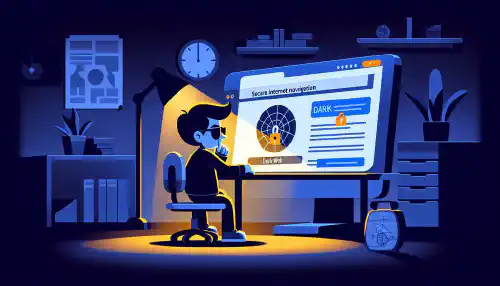
Creating strong and unique passwords
Creating strong and unique passwords is crucial for protecting your online accounts from unauthorized access. A strong password should be a combination of uppercase and lowercase letters, numbers, and special characters. Avoid using common words or personal information that can be easily guessed.
To create a strong and unique password:
- Use a minimum of 12 characters
- Include a mix of letters, numbers, and special characters
- Avoid using dictionary words or common phrases
- Don’t reuse passwords across multiple accounts
- Consider using a password manager to securely store and generate complex passwords
Remember, a strong password is your first line of defense against hackers and unauthorized individuals. By following these guidelines, you can significantly enhance the security of your online accounts.
Using two-factor authentication
Two-factor authentication (2FA) is a crucial security measure when navigating the Dark Web. It adds an extra layer of protection to your online accounts by requiring two forms of identification: something you know (like a password) and something you have (like a unique code generated by an authentication app).
Implementing 2FA significantly reduces the risk of unauthorized access to your accounts, as it makes it much harder for attackers to bypass your security measures. Here are some key points to consider when using 2FA:
- Choose a reputable authentication app that supports time-based one-time passwords (TOTP) or Universal 2nd Factor (U2F) protocols.
- Avoid using SMS-based 2FA, as it can be vulnerable to SIM swapping attacks.
- Regularly review and update your 2FA settings to ensure the highest level of security.
Tip: Enable 2FA for all your Dark Web accounts and any other online platforms that offer this feature. It provides an additional safeguard against unauthorized access and helps protect your sensitive information.
By following these best practices, you can enhance the security of your Dark Web activities and minimize the risk of falling victim to cyber threats.
Encrypting your communications
Encrypting your communications is crucial when navigating the Dark Web. By encrypting your messages, you can ensure that only the intended recipient can read them, protecting your privacy and preventing unauthorized access.
To encrypt your communications on the Dark Web, you can use end-to-end encryption. This means that your messages are encrypted on your device and can only be decrypted by the recipient’s device. This ensures that even if your messages are intercepted, they cannot be read by anyone else.
Additionally, it is important to use secure communication channels when interacting on the Dark Web. This includes using encrypted messaging apps or platforms that prioritize privacy and security.
To further enhance the security of your communications, consider using anonymous email services. These services allow you to send and receive emails without revealing your true identity.
Remember, encrypting your communications is an essential step in protecting your privacy and maintaining anonymity on the Dark Web.
Avoiding revealing personal information
When navigating the Dark Web, it is crucial to take precautions to avoid revealing personal information. The Dark Web is a haven for cybercriminals and hackers, and they are constantly looking for ways to exploit unsuspecting users. To protect yourself, follow these guidelines:
Protecting against identity theft
Identity theft is a serious concern when navigating the Dark Web. Cybercriminals often target unsuspecting individuals to steal their personal information and use it for illegal activities. To protect yourself from identity theft, it is crucial to follow best practices and take necessary precautions.
1. Use strong and unique passwords: Creating strong passwords that are difficult to guess is essential. Avoid using common words or personal information in your passwords. Additionally, use a different password for each online account to minimize the impact of a potential breach.
2. Enable two-factor authentication: Two-factor authentication adds an extra layer of security to your online accounts. By requiring a second form of verification, such as a unique code sent to your mobile device, it becomes significantly harder for attackers to gain unauthorized access.
3. Encrypt your communications: When communicating on the Dark Web, it is important to use encryption to protect your messages from interception. Tools like PGP (Pretty Good Privacy) can be used to encrypt and decrypt messages, ensuring that only the intended recipient can read them.
4. Avoid revealing personal information: Be cautious about sharing personal information on the Dark Web. Avoid providing unnecessary details that could potentially be used to identify or track you. Remember, anonymity is key to staying safe.
5. Protect against identity theft: Regularly monitor your financial accounts and credit reports for any suspicious activity. If you suspect that your identity has been compromised, take immediate action by contacting the relevant authorities and financial institutions.
Tip: It is recommended to use a separate device or virtual machine dedicated solely to accessing the Dark Web. This helps minimize the risk of cross-contamination between your regular online activities and Dark Web browsing.
Protecting your identity is crucial in today’s digital age. With the increasing number of cyber threats and data breaches, it is important to take proactive steps to safeguard your personal information. At simeononsecurity.com , we provide expert insights and resources to help you stay ahead in cybersecurity. Our website covers a wide range of topics including privacy, security, and technology. Whether you are an individual or a business, our essential resources can help you enhance your online security. Visit simeononsecurity.com today to discover the latest trends and best practices in cybersecurity and protect your identity.
Conclusion
In conclusion, navigating the Dark Web can be a daunting task for beginners. However, with the right knowledge and precautions, it is possible to explore this hidden part of the internet safely. Understanding the Dark Web and how it works is crucial in order to protect oneself from potential risks. By using a VPN for anonymity and the Tor browser as a gateway, users can enhance their privacy and security. It is important to be cautious of scams and malware, and to protect personal information while interacting with online communities. Additionally, it is essential to be aware of the legal and ethical considerations surrounding the Dark Web, and to report any illegal activities encountered. By following best practices such as creating strong passwords, using two-factor authentication, and encrypting communications, individuals can further protect their identity while navigating the Dark Web. Overall, the Dark Web can be a valuable resource for certain purposes, but it is crucial to approach it with caution and responsibility.
Frequently Asked Questions
Is it illegal to access the Dark Web?
Accessing the Dark Web is not illegal in most countries, but engaging in illegal activities on the Dark Web is.
How can I protect my identity while browsing the Dark Web?
You can protect your identity on the Dark Web by using a VPN, encrypting your communications, and avoiding revealing personal information.
Are all websites on the Dark Web illegal?
Not all websites on the Dark Web are illegal. There are legitimate websites and services available, although illegal content does exist as well.
Can I trust the websites on the Dark Web?
It is important to exercise caution and skepticism when browsing the Dark Web. Some websites may be scams or contain malicious content.
How can I report illegal activities on the Dark Web?
If you come across illegal activities on the Dark Web, you can report them to your local law enforcement agency or to organizations that specialize in cybercrime.
What are the ethical implications of using the Dark Web?
Using the Dark Web raises ethical concerns as it can provide access to illegal activities and content. It is important to consider the potential harm and consequences of engaging with such activities.



